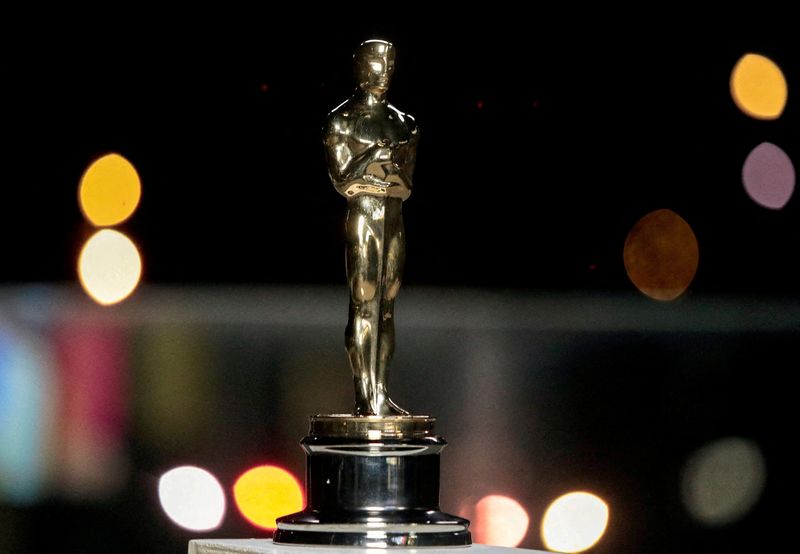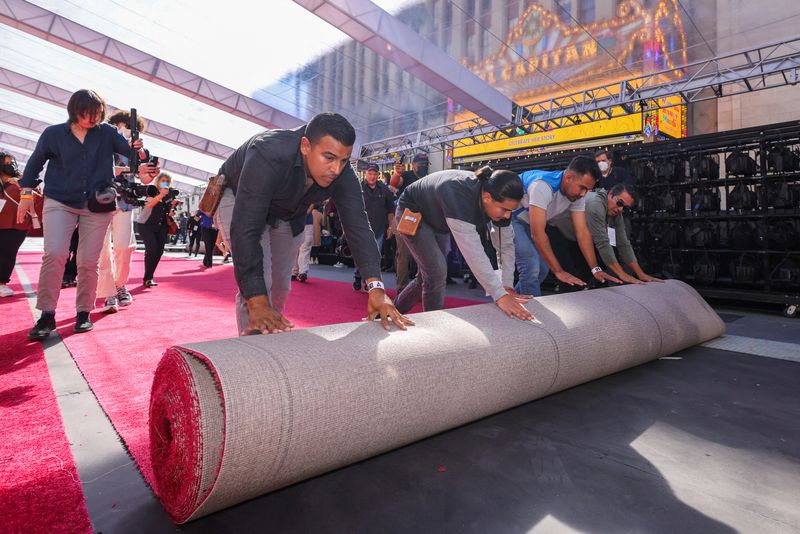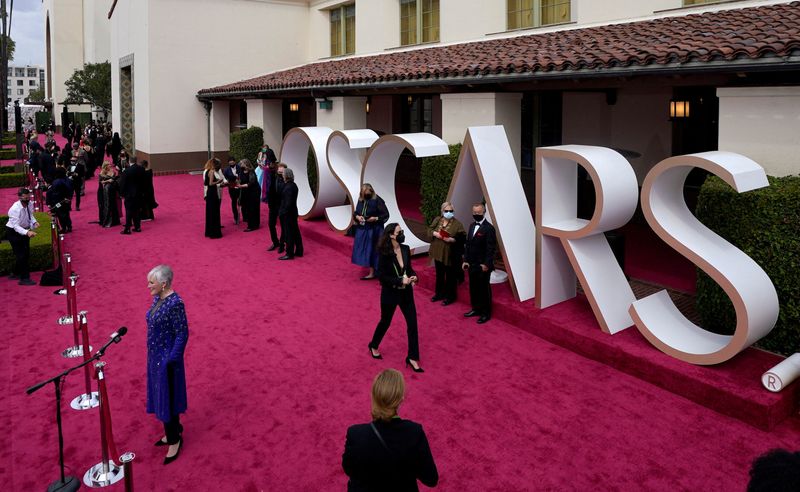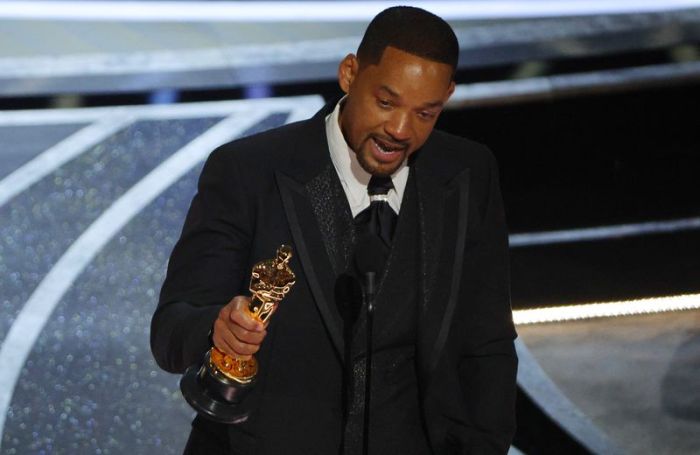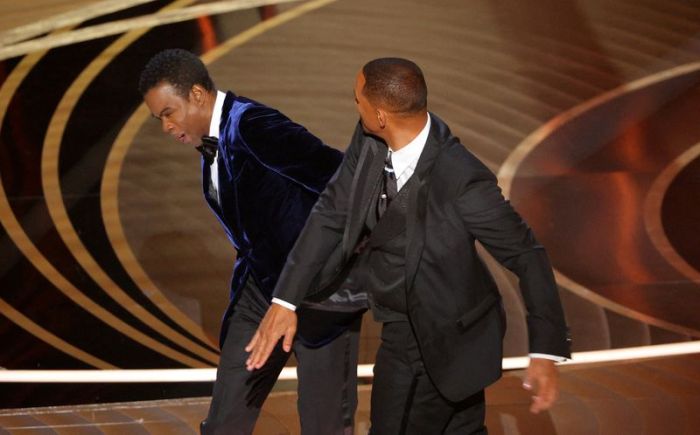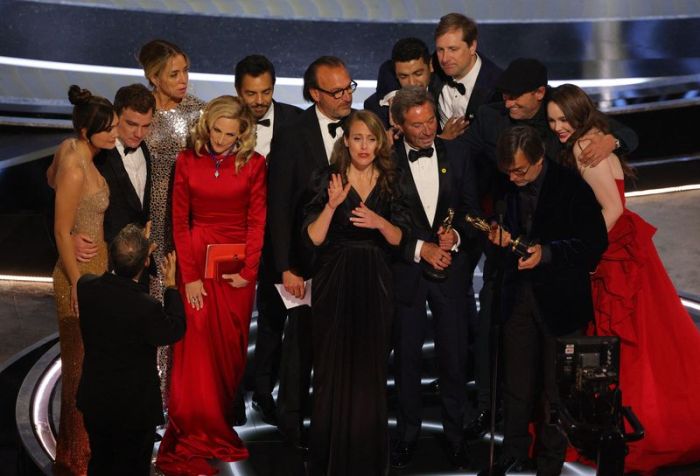LOS ANGELES (Reuters) -Three female comedians will share hosting duties, fans will choose two awards, and some acceptance speeches will be recorded before the live broadcast.
That is part of the plan to shake up this year’s Academy Awards telecast, which faces a pivotal test on Sunday to try and rebound from last year’s record-low ratings.
After going without a host since 2019, the 94th Oscars boasts three: comedians Amy Schumer, Regina Hall and Wanda Sykes. It marks the first time a trio of women will emcee the ceremony, each bringing her own sense of humor.
“We’re already starting with three vaginas,” Hall said in an interview. “I think three women on stage already sets (the show) off, so I think we’re starting pretty hot.”
“Trainwreck” star Schumer has described her style as “mean-spirited” and said she is ready to “burn some bridges” in the A-list audience. “That’s why we’re all here, just so we can trash each other,” she joked in a video released by broadcaster ABC.
Speaking to reporters on Thursday, Hall and Sykes promised a gentler tone to reflect the show theme of “Movie Lovers Unite.”
“We’re coming in there with love,” Sykes said. “We want everyone to have a good time, and we want everybody to feel at ease.”
In its heyday, the Academy Awards reigned as must-see TV and served as a glitzy commercial for Hollywood. More than 55 million U.S. viewers tuned in when megahit “Titanic” swept the honors in 1998.
Last year, when the COVID-19 pandemic prompted organizers to move the ceremony to a train station with limited attendance and no musical performances, viewership sank to 10.4 million on ABC, which has rights to televise the show through 2028.
And while the audience size is shrinking, the age of viewers watching traditional television, including the Oscars, is rising, said media consultant Brad Adgate.
“Younger viewers are not staying home to watch this,” Adgate said. “I think the genre has become passe, like beauty pageants used to be a big event on television. It’s slipping into that category.”
The Academy of Motion Picture Arts and Sciences, which organizes the Oscars, is not alone in this challenge.
With the exception of NFL football games, live TV viewing has declined across the board as viewers turn to streaming shows on demand or spend time on TikTok and Twitter. The Emmys and Grammys also posted record-low viewership during the pandemic.
Plus, ratings data do not capture all of the viewership on streaming.
At this year’s Oscars, music will be back with performances by superstars Beyonce, Billie Eilish and others.
Organizers also hope to highlight some of the year’s biggest movies by announcing the results of two fan polls conducted on Twitter, for favorite film and best film moment.
Recent nominations have tended to focus on arthouse titles. This year’s most-nominated movie, “The Power of the Dog,” is a psychological thriller that streamed on Netflix, about a cruel ranch owner in the American West.
Producers are aiming to keep the show to three hours. Some years it has stretched beyond four.
To help keep within that time limit, winners of eight awards including sound and production design will be announced inside the Dolby Theatre just before the TV broadcast. Edited recordings of their speeches will be played during the telecast.
The change sparked a backlash from Steven Spielberg and others who said it was a slight to craftspeople who are critical to bringing movies to the screen.
“They are trying to make the show punchier and shorter,” said Nigel Smith, movies editor at People magazine. “Hopefully, that’s the kind of show we’re going to be seeing, something surprising and new and fresh.”
If ratings decline further, he added, “they’re just going to have to go back to the drawing board.”
(Reporting by Lisa Richwine in Los Angeles; Additional reporting by Alicia Powell in New York and Rollo Ross in Los Angeles; Editing by Jonathan Oatis, Richard Chang and Aurora Ellis)

